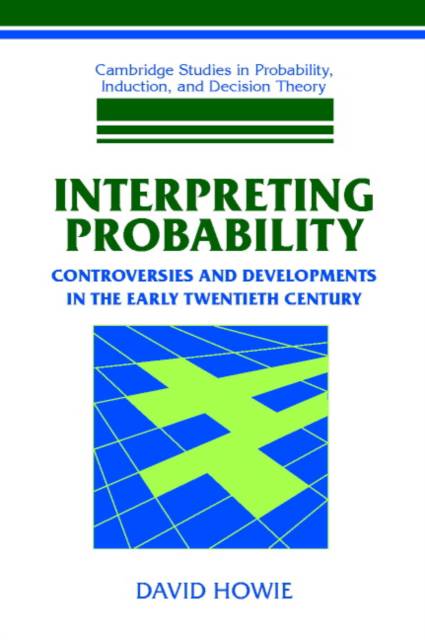
- Afhalen na 1 uur in een winkel met voorraad
- Gratis thuislevering in België vanaf € 30
- Ruim aanbod met 7 miljoen producten
- Afhalen na 1 uur in een winkel met voorraad
- Gratis thuislevering in België vanaf € 30
- Ruim aanbod met 7 miljoen producten
Zoeken
€ 172,95
+ 345 punten
Uitvoering
Omschrijving
This book is a study of the concept of probability as it has been used and applied across a number of scientific disciplines from genetics to geophysics. Probability has a dual aspect: sometimes it is a numerical ratio; sometimes, in the Bayesian interpretation, a degree of belief. David Howie examines probabilistic theories of scientific knowledge, and asks how, despite being adopted by many scientists and statisticians in the eighteenth and nineteenth centuries, Bayesianism was discredited as a theory of scientific inference during the 1920s and 1930s. Through a close examination of a dispute between two British scientists, the author argues that a choice between the two interpretations of probability is not forced by pure logic, or the mathematics of the situation, but depends on the experiences and aims of the individuals involved, and their views of the correct form of scientific inquiry.
Specificaties
Betrokkenen
- Auteur(s):
- Uitgeverij:
Inhoud
- Aantal bladzijden:
- 276
- Taal:
- Engels
- Reeks:
Eigenschappen
- Productcode (EAN):
- 9780521812511
- Verschijningsdatum:
- 26/08/2002
- Uitvoering:
- Hardcover
- Formaat:
- Genaaid
- Afmetingen:
- 152 mm x 229 mm
- Gewicht:
- 576 g

Alleen bij Standaard Boekhandel
+ 345 punten op je klantenkaart van Standaard Boekhandel
Beoordelingen
We publiceren alleen reviews die voldoen aan de voorwaarden voor reviews. Bekijk onze voorwaarden voor reviews.











